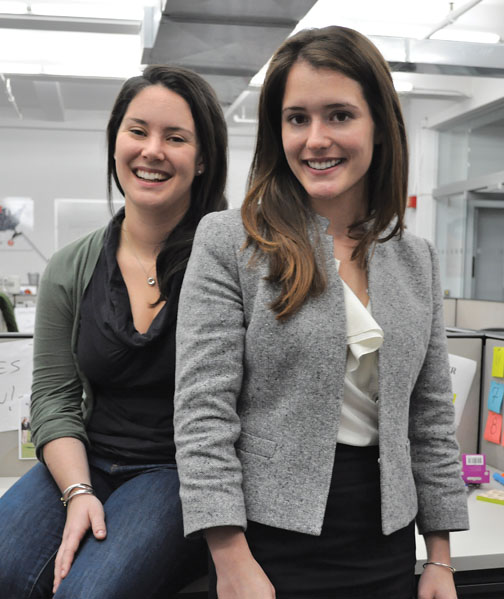Students pass up senior year to lead drive for school reform
From her days as a teaching assistant at National Cathedral School and as a charter-school intern in Washington, D.C., Catharine Bellinger ’12 has learned to value a good education. The same is true for Alexis Morin ’12, who spent a summer working with Jason Kamras ’95, a former National Teacher of the Year, in the District of Columbia’s school system.
During their sophomore year, Bellinger and Morin formed a group called Students for Education Reform (SFER), with the goals of closing the education gap in public schools and developing a new generation of school-reform leaders.
Interest spread beyond the campus, as SFER grew to more than 30 chapters in 15 states, and the two came to the bittersweet decision to postpone their senior year to focus on the organization’s future.
“We have an incredible sense of urgency about this work,” Bellinger said. “We saw that student organizing had the power to change the system now, and waiting even one year would have slowed down the momentum of our organization.”
Morin said her parents asked her “why I couldn’t have waited another year. I love my parents and appreciate them giving me good advice, but at this moment, [working fulltime with SFER] was an opportunity that I couldn’t pass up.”
She and Bellinger plan to return to and graduate from the University, but this year Bellinger is serving as executive director and Morin as chief operating officer in SFER’s offices in New York City. The group’s funding comes primarily from individual donations, but the CityBridge Foundation — led by Katherine Bradley ’86 — also has given grants to SFER.
The group is focusing its efforts on Connecticut, Massachusetts, Minnesota, and New York because it feels that those states have a more favorable environment for education reform. By next June, SFER hopes to have chapters in each of those states and 100 chapters nationwide.
Morin said that number is an “ambitious” goal, but SFER remains confident that it can have an impact despite the economic downturn and cutbacks in education funding. “Education has become dinner-table conversation. It concerns everyone — parents, students, teachers, legislators,” she said.
The group has set three major objectives for the year: building awareness of education inequities, training students for job opportunities in the area of education reform, and pushing for state legislation that directly would affect students and education. For example, the SFER chapter at the University of Minnesota recently mobilized to support a bill that eliminates seniority-based teacher layoffs, calls for detailed teacher and principal evaluations, and reforms teacher tenure.
“Legislators will learn that public education is an issue that students care deeply about,” Bellinger said. “I’m excited to see what this year’s legislative cycle brings.”













1 Response
Jonathan Greenberg *02
10 Years AgoAnother school-reform path
It is with sadness and frustration that I read about privileged Princeton undergraduates taking up the cause of school reform (Campus Notebook, Nov. 16), which now has become synonymous with union-busting, standardized testing, charterization, and the diversion of taxpayer money into charters and vouchers that serve a select few. Training “a new generation of school-reform leaders” to spearhead Wall Street’s attack on teachers no doubt will provide lucrative and prestigious managerial positions for young Princeton alums, but it won’t do a thing for America’s underfunded and understaffed schools.
As an alternative, I’d suggest that Princeton grads who want to make a difference should commit themselves to training real teachers, or better yet — since the pay and benefits are apparently so good — to spending 10 or 15 years themselves teaching in public schools.